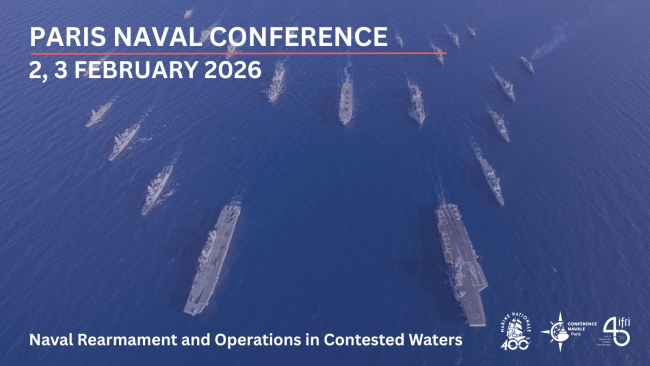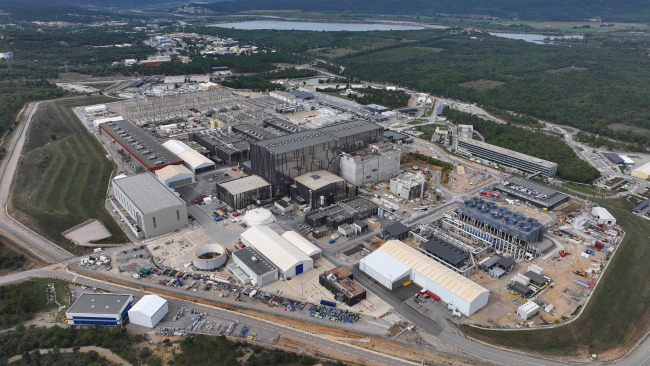
Practical information
Recent developments in artificial intelligence (AI), particularly in generative AI, have renewed the interest of the general public and decision-makers in a field that has long been considered strategic.

In recent years, rapid advances in machine learning algorithms and computing power have unleashed a wave of transformative capabilities, raising crucial questions about global competition, cooperation and regulation. This is particularly evident in the growing rivalry between the United States and China, who are deploying their policies of incentives and restrictions, with the ambition of asserting themselves as leaders in AI research and applications. Beyond this duopoly, this conference also aims to explore the emergence of Europe and digital middle powers as influential players in the development and regulation of AI.
This conference will take place in English, with French interpreters, in a hybrid format (in-person at Ifri, and online).
PROGRAM
Panel 1: Geopolitical rivalry and the global competition in AI (14:30-16:00 CEST)
United States-China rivalry is driving international competition in AI: What are the progresses and weaknesses on both sides? How do support plans and restrictions affect technological progress, in the U.S., in China and beyond? What are the strategic implications for France and Europe?
Chair: Mathilde VELLIET, Research fellow in the Geopolitics of Technology Program, Ifri
- Gregory ALLEN, Director of the Wadhwani Center for AI and Advanced Technologies and Senior Fellow, CSIS
- Rebecca ARCESATI, Lead Analyst, MERICS
- Séverine ARSENE, Advisor on Asia, CAPS, French Ministry of European and Foreign Affairs
Coffee break
Panel 2: How can Europe and its partners shape the development of AI? (16:15-17:45 CEST)
How are AI regulation models adapting to technological developments and geopolitics? How is international cooperation on norms progressing? What human-centric and/or open source and open science models of AI can be promoted?
Chair: Alice PANNIER, Head of the Geopolitics of Technology Program, Ifri
- Mark SCOTT, Chief Technology Correspondent, Politico
- Benoit BERGERET, Executive Director, ESSEC Metalab for data, technology and society
- Alex ENGLER, Fellow in Governance Studies, Brookings
- Trisha RAY, Deputy Director, Centre for Security, Strategy and Technology, Observer Research Foundation
Related Subjects
Other events

Paris Naval Conference 2026: Naval Rearmament and Operations in Contested Waters
This fourth edition of the Paris Naval Conference (CNP), bringing together high-level military, industrial, and academic speakers, will address the challenges associated with general naval rearmament and naval operations in increasingly contested environments.

Is Fusion Coming Faster and Cheaper than Expected?
ITER was for long time the embodiment of fusion as an international, long standing R&D cooperation objective to seek a new way to produce safe, low carbon and abundant low carbon electricity. Yet over past years, fusion start ups, several governments and investors have decided to push fusion R&D and deployment to complement ITER. Major efforts are ongoing notably in the United States, China, Germany, Italy.

EV Supply Chains for Japan and Europe: Strengthening Economic Security
Economic security aims to ensure the resilience of supply chains for key industries: the case of electric vehicle production in Japan and Europe will be discussed.







